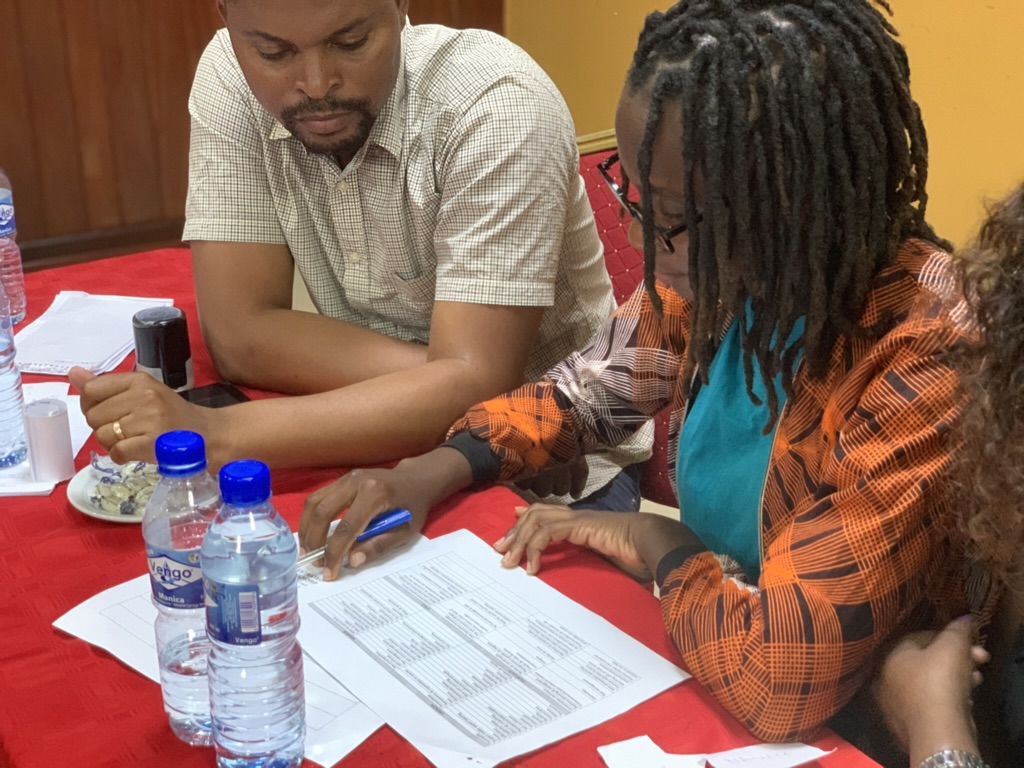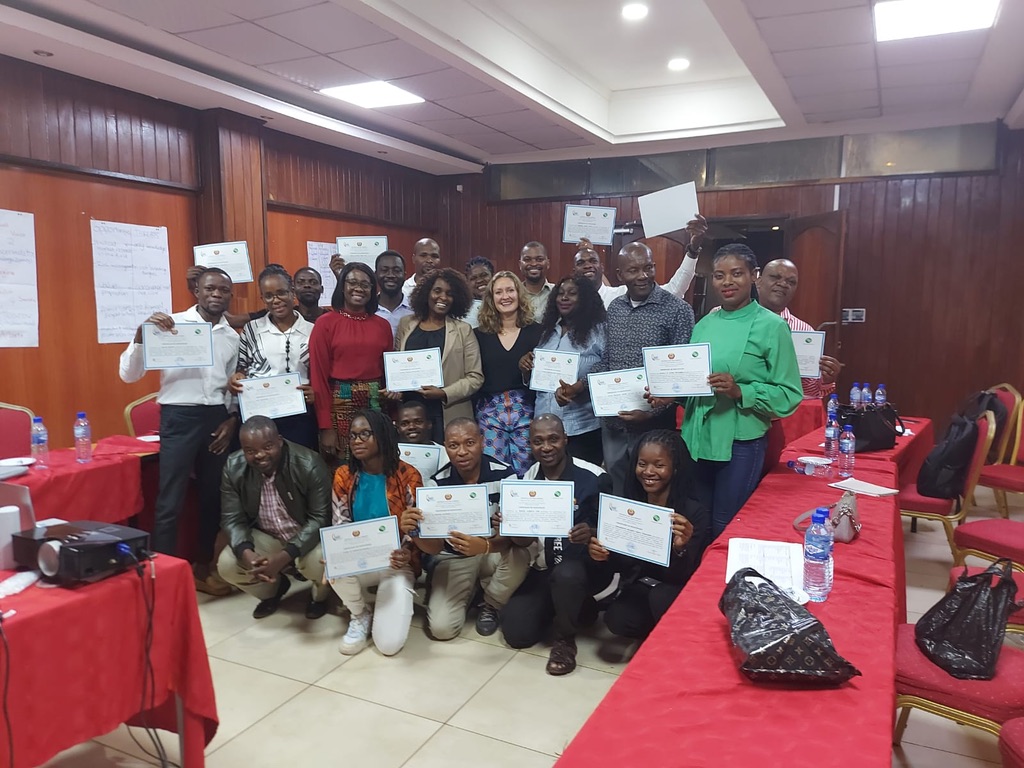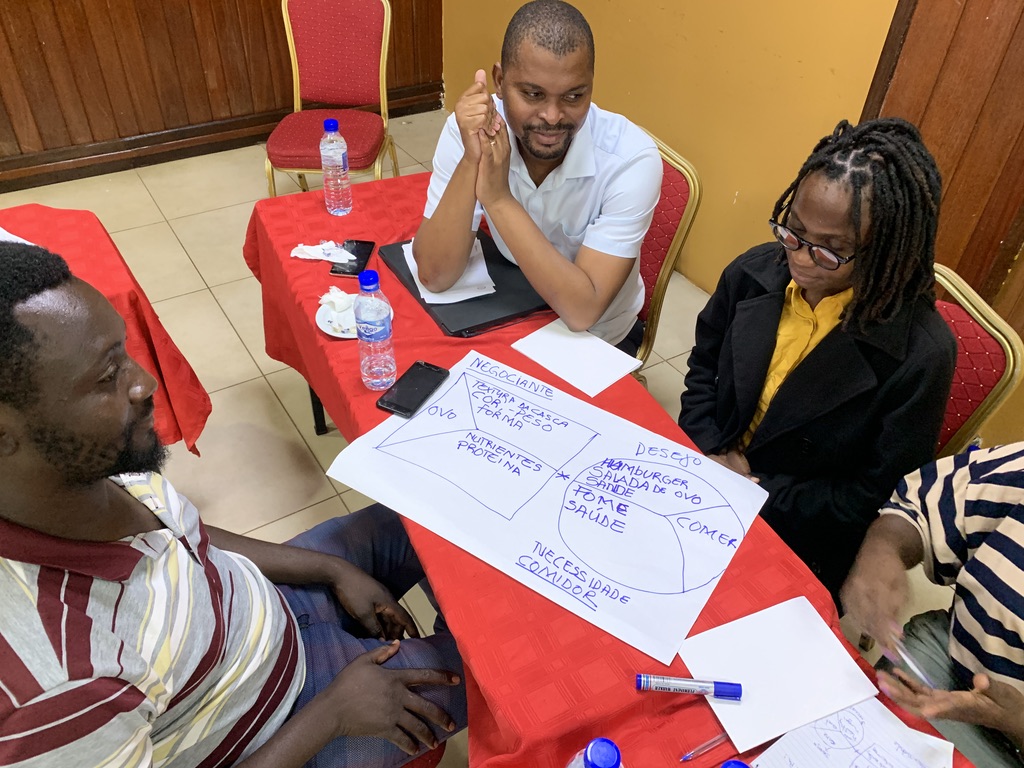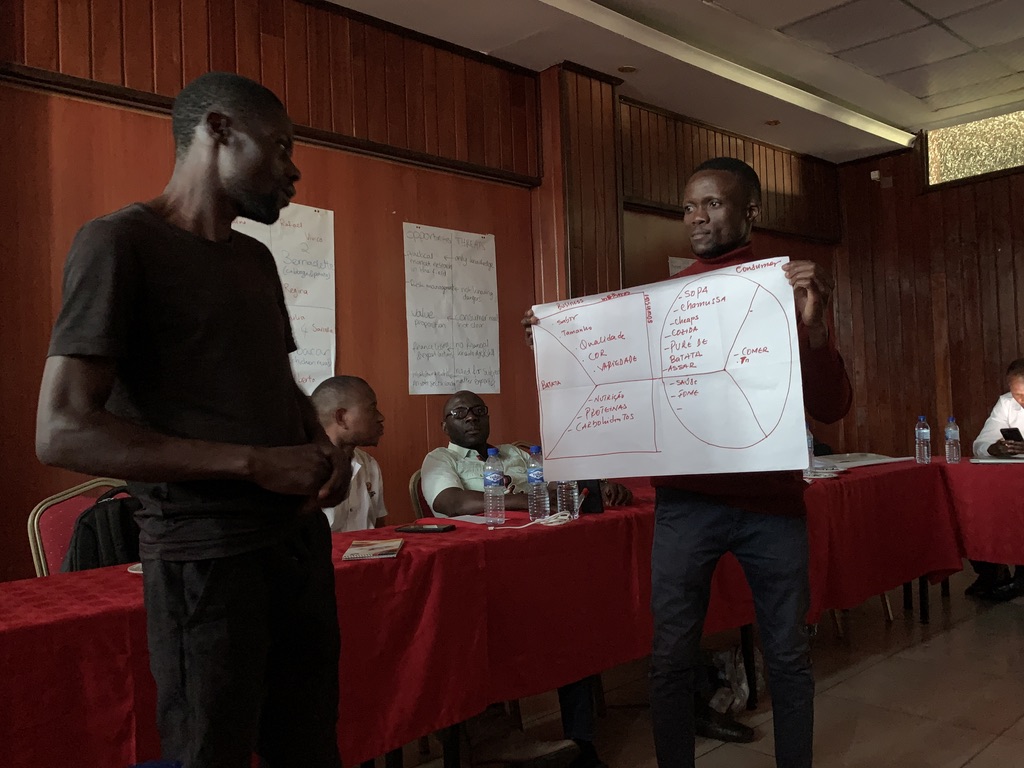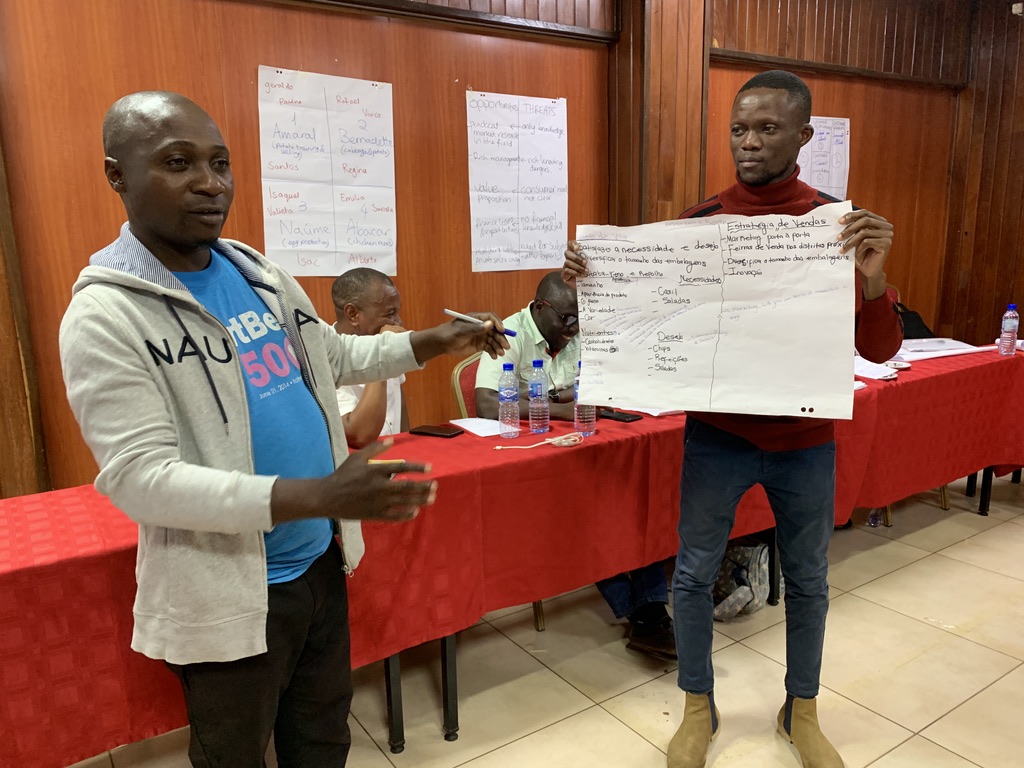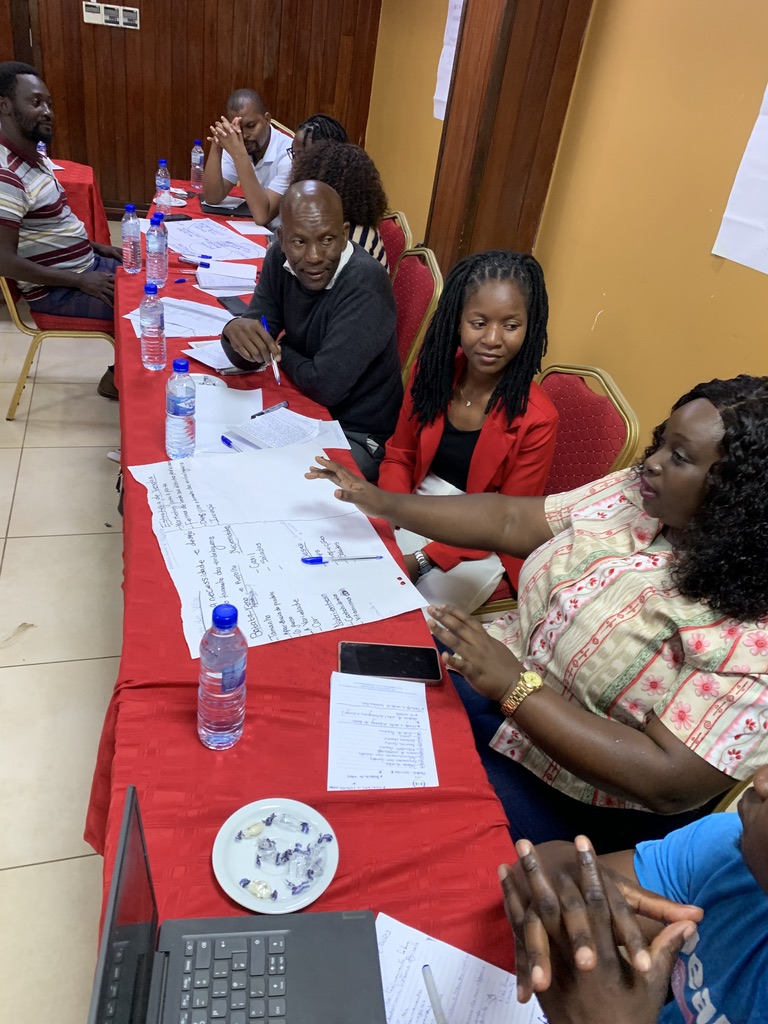Entrepreneurship in Mozambique
Students and young entrepreneurs are being incubated all over Mozambique in order to empower the new generation of agricultural professionals. The country’s transition into a future-proof, inclusive and profitable agricultural sector requires a workforce capable to establish businesses that contribute to developing the private sector.
In the startup process, incubatees receive mentoring from supervisors who offer guidance on aspects ranging from production and bookkeeping to market research. However, post-incubation, very few new companies are created and the vast majority stops immediately after the incubation period. Why? This phenomenon is caused by a variety of challenges.
One of the reasons is the lack of funding eligibility based on criteria of banks and microfinance institutions, which is caused by poor understanding and elaboration of finances and business management. The knowledge and support on how to set up a business is offered during incubation, but support in the transition from incubatee to independent business owner is not provided.
Besides that, interpersonal skill development is not included in the incubation trajectories, let alone personal branding, pitch training and soft skills as communication and negotiation. Not only incubatees, but also staff members are eager to develop these competences.
Training: Support in entrepreneurship and business incubation for youth empowerment:
In line with the needs, the training, given by Elisa Matola and Lisa Rotteveel as part of our NUFFIC project: ‘STRENGTHENING CAPACITIES OF CITT AND ZAMBEZI UNIVERSITY’, was focused on upgrading the existing business incubation trajectories of CITT and University of Zambezia.
The first day of online training taught the participants (incubatees and staff members) all about the Business Model Canvas method as theoretical framework for a practical continuation of the rest of the training week live taking place in Chimoio, Mozambique.
The physical training part started with MBTI, used for personal development of both students and teachers. Both for a different purpose: for incubatees to gain insight in personal strengths and weaknesses regarding entrepreneurial competences and for staff members to learn how to coach incubatees utilizing helpful character traits.
Practical training approach:
Throughout the week, participants identified challenges within the incubation process and designed improvement interventions using the SWOT analysis method. This was followed by a personal branding workshop and pitch training.
On the last day, guest lectures were given by Monteiro (ISPM business incubation hub) and Grata (former incubatee and currently successful Mozambican entrepreneur) to link the classroom to best practices in the field and motivated the participants to start or continue their entrepreneurial journey!
Related news
Empowering smallholder farmers in Tanzania through Training and Capacity building.

Today, October 1, 2024, we have welcomed three new colleagues to Q-Point in Wageningen!

From dumpsite to urban farm: a story from Kibera
An urban farm established on a former dumpsite in Kibera? That seems challenging, but has proven to be very much [...]

